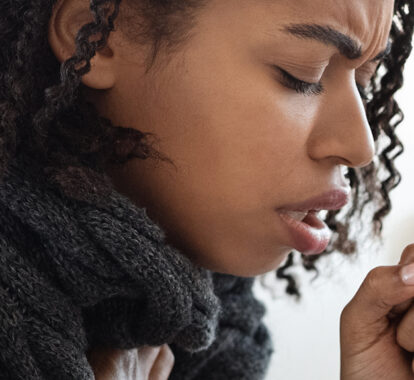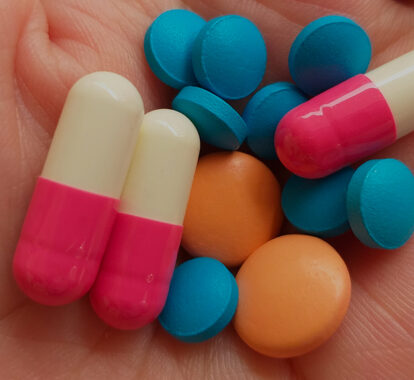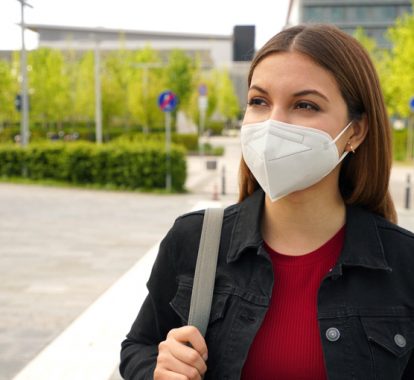COVID-19: What test should I get?
June 12, 2020

6 things to know about antigen and antibody testing
Public health and government officials are encouraging COVID-19 testing to understand the pandemic in order to safely open society.
As of June 11, the Centers for Disease Control (CDC) reports that over 22.4 million people in the U.S. have been tested.
Below are 6 facts to help clarify some of the critical issues around COVID-19 testing to help you determine whether testing is needed for you, your family, and/or your employees.
- What types of COVID-19 tests are available?
There are 2 types of tests available.The Antigen test identifies an active infection. There are two types of antigen tests; a molecular test commonly referred to as a diagnostic RT-PCR (Reverse Transcription-Polymerase Chain Reaction) test AND a rapid antigen test.The Antibody test identifies prior infection and is commonly referred to as a serology test. - Should I look for a U.S. Federal Drug Administration (FDA) approved or authorized test? Yes. The FDA is the federal oversight agency that monitors medical tests, equipment and therapies.Currently, no antigen or antibody test has received FDA approval, though many have received authorization.FDA approval of a medical test or device can take as long as 1 year. But, due to the pandemic, the U.S. Secretary of Health & Human issued an emergency declaration to allow the use of unapproved medical products to diagnose, treat or prevent COVID-19 because there was no adequate or available alternatives.As of June 11, there have been 135 tests that have received Emergency Use Authorization (EUA) from the FDA.Of the 135 tests that have received FDA EUA, there are 114 molecular tests, 20 antibody tests and 1 antigen test.
- How does the doctor take the tests? The antigen test uses a nasal or nasopharyngeal swab that is stuck up the nose to absorb mucus.The antibody test requires an extraction of a test tube of blood.Providers collect specimen for both the antigen and antibody test in just a few minutes, and some patients may find either test somewhat uncomfortable depending on their personal preferences.
- How and when do I get test results? The antigen test using reverse transcription polymerase chain reaction, or RT-PCR, is traditionally sent to a lab where it can take 24-48 hours to receive results. This is the test that has been used since the onset of the pandemic.In most cases, patients get results from the provider who administered the test. If a test was conducted at a government-funded testing site, the organization may call or send a text or email.Results from an FDA-authorized rapid antigen test are available in 15 minutes, as the provider has the lab technology in-house. The provider is able to share results with the patient before they leave the clinic or office.Results from an antibody test take 24-48 hours, as the specimens need to be sent to a lab. The provider whom administered the test will also provide the results, unless you received an antibody test from a government organization. Each organization has its protocol for sharing results.
- When should I get an antigen test?
- If you have COVID-19 symptoms such as fever of 100.4, cough, shortness of breath, body aches, chills, new loss of taste or smell, vomiting or diarrhea and/or sore throat, you should be tested. Hospitalized patients, health care workers, first responders, and those living in congregate settings like nursing homes, prisons and homeless shelters are high priority.
- If you do not have symptoms and have been exposed to the virus through infected family members, friends or coworkers you should be tested. Priority individuals include racial and ethnic minority groups disproportionately affected by adverse COVID-19 outcomes including African-Americans, Hispanics and Latinos, and American Indians, as well as those with underlying health conditions or disabilities.
The CDC offers these guidelines: https://www.cdc.gov/coronavirus/2019-nCoV/hcp/clinical-criteria.html
- When should I get an antibody test? There is no medical recommendation for an antibody test, yet.Medical research has not yet proven that a person with COVID-19 antibodies is immune to a repeat COVID-19 infection.There are viral infections for which a patient may produce antibodies either after contracting or being vaccinated against the disease that will generate resistance or immunity, such as measles or chicken pox. But this is not the case with all viral infections. Herpes and genital herpes are viruses where antibodies are present, but infections continue to occur.More research is necessary to understand the meaning of a positive COVID-19 antibody test.A positive antibody test should NOT be used to discontinue or reduce social distancing, hand washing or use of masks.
Texas MedClinic COVID-19 Testing
Texas MedClinic offers all three types of COVID-19 tests: PCR antigen test, Quidel rapid antigen test and the Roche antibody test. All three tests are FDA authorized.
Texas MedClinic was established in 1982 by Dr. Bernard T. Swift, Jr., as a group medical practice that specializes in urgent care and occupational medicine. Texas MedClinic has grown to 13 locations in San Antonio, two in New Braunfels, two in Austin, one in Round Rock, and one in Bulverde/Spring Branch. Texas MedClinic is staffed with 82 medical providers including physicians, physician assistants, and nurse practitioners and over 450 employees.
Not a primary care practice, Texas MedClinic is not intended to replace a patient’s primary care physician. The privately-owned clinics offer patients who have urgent medical problems an alternative to the long waiting times at hospital ER’s, the new free-standing emergency rooms, and traditional family doctor offices when appointment times may be filled.





